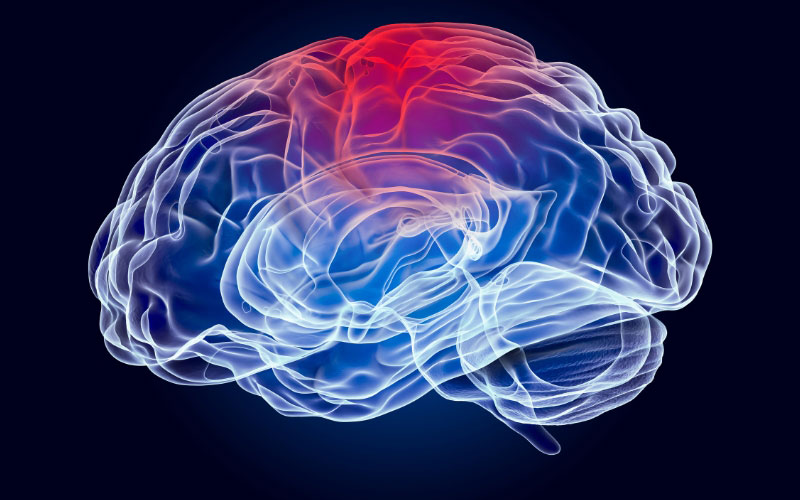U.S. Special Operations Forces veterans who participated in a Stanford University study showed dramatic improvement in symptoms of traumatic brain injury (TBI) after ibogaine treatment, according to an article published in Nature Medicine.
The study report, authored by Dr. Nolan Williams, associate professor in the Department of Psychiatry and Behavioral Sciences and director of the Brain Stimulation Lab at Stanford University, concludes that ibogaine – combined with a cardioprotective agent – effectively treated TBI in Special Operations veterans.
Prior to ibogaine treatment, participants scored an average of 30.2 on the World Health Organization Disability Assessment Schedule 2.0, which is equivalent to mild to moderate disability. At one month following ibogaine treatment, the average rating improved to 5.1 – equivalent to no disability.
The researchers also found a statistically significant reduction in suicidal ideation from participants, decreasing from 47% to 7% one month following treatment. The participants experienced no serious side effects or heart complications resulting from the ibogaine treatment.
“At baseline, study participants experienced clinically meaningful levels of disability, PTSD, depression and anxiety,” Williams explains in Nature Medicine. “After [treatment], participants showed a remarkable reduction in these symptoms with large effect sizes (Cohen’s d > 2 on clinician-rated psychiatric assessments) and the benefits were sustained at the one-month follow-up. Indeed, disability measures continued to improve and psychiatric-symptom remission and response rates one month post-MISTIC [Magnesium–Ibogaine: the Stanford Traumatic Injury to the CNS protocol] remained high.”
According to the article in Nature Medicine, “Neuropsychological testing (NPT) revealed areas of improvement after treatment, particularly in processing speed and executive function, without any detrimental changes observed. With regard to safety, no serious or unexpected adverse events (AEs) occurred, and management of AEs was uncomplicated.”
All of the study participants received Foundational Healing Grants from Veterans Exploring Treatment Solutions (VETS) for travel support and ibogaine therapy.
Since its inception in 2019, VETS has been combating veteran suicide by providing resources, research and advocacy efforts for veterans and veterans’ spouses seeking psychedelic-assisted therapies for PTSD, TBI and other mental-health conditions.
“Veterans are on the front line of our national defense, but here they are on the front line of cutting-edge research that has the potential to help millions of people – both in and out of uniform,” said Amber Capone, co-founder and CEO of VETS. “We remain laser-focused and dedicated to our mission of supporting access to psychedelic-assisted therapies for veterans and advancing research into their safety and efficacy. Our collaboration with Stanford University and Dr. Williams is a major step forward in proving the potential of ibogaine for treating PTSD and TBI.”
‘A Renewed Sense of Hope’
All participants in the study received treatment at Ambio Life Sciences, an independent clinic in Mexico that provides somatic therapies alongside psychedelic therapies in a medically supported environment. VETS provided travel funding for the study participants as part of its Foundational Healing Grants program, along with classes, coaching, integration support and more.
The 30 participants selected had a history of TBI and repeated blast exposures and were experiencing clinically severe psychiatric and cognitive impairments before seeking support from VETS.
“I went from being constantly angry and feeling alone, burdened by the trauma of war and the loss of 12 friends to suicide, to finding a renewed sense of hope and peace,” said Patrick Flatley, a U.S. Army Green Beret veteran and study participant. “The turning point was ibogaine treatment. Today, I am grateful to sleep well, live without daily fight-or-flight reactions, and look forward to life with newfound hope.”
Ambio CEO Jonathan Dickinson said the observational study “reinforces what we’ve learned through thousands of treatments: that ibogaine can be safe and effective when provided in the right context.”
“For Ambio, the study further highlights the remarkable healing potential of ibogaine, which we’re confident will expand the treatment landscape for veterans and many others,” Dickinson added.
More Research Needed
While the results of the observational study are promising, Williams points out that “additional research is needed to address some clear limitations.”
“Importantly, the present study was not a randomized controlled trial and participants elected to travel internationally for the treatment,” Williams explains in Nature Medicine. “As such, we cannot exclude the possibility that the therapeutic benefits were a result of expectancy rather than MISTIC. Similarly, the complementary therapeutic approaches available to [Special Operations veterans] during their stay in Mexico may have played a role in the therapeutic benefit that we observed, because other similar approaches with veterans have demonstrated benefits, albeit considerably smaller than those that we found.
“ … In summary, our study provides initial evidence to suggest that MISTIC could be a powerful therapeutic for the transdiagnostic psychiatric symptoms that can emerge after TBI and repeated exposure to blasts and combat, including suicidality, but replication of our findings is needed, particularly in non-mild TBI cases.”

